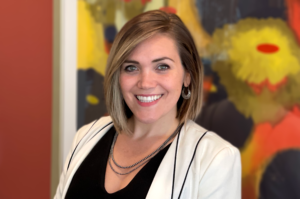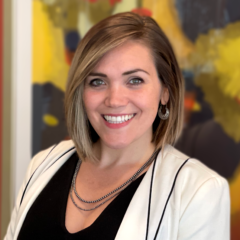 For over 50 years, public accommodation laws have guaranteed every person access to the full and equal enjoyment of businesses open to the public without unjust discrimination. These laws not only serve to ensure that persons of all races, genders, etc. are able to enter and purchase products and services from public-facing businesses—but also ensured equal dignity in the marketplace. In passing Title II of the Civil Rights Act of 1964, Congress invoked the idea that someone who used “his private property for purposes of commercial gain by offering goods or services to the public” must “abide by a legal norm of non-discrimination,” or, in other words, commit to offering those goods or services to all members of the public. Since then, many states have passed their own public accommodations laws requiring those that engage in the marketplace to treat all persons equally. Many states expanded those rights to various groups beyond the promises of the federal laws, including protecting customers identifying as LGBTQ+.
For over 50 years, public accommodation laws have guaranteed every person access to the full and equal enjoyment of businesses open to the public without unjust discrimination. These laws not only serve to ensure that persons of all races, genders, etc. are able to enter and purchase products and services from public-facing businesses—but also ensured equal dignity in the marketplace. In passing Title II of the Civil Rights Act of 1964, Congress invoked the idea that someone who used “his private property for purposes of commercial gain by offering goods or services to the public” must “abide by a legal norm of non-discrimination,” or, in other words, commit to offering those goods or services to all members of the public. Since then, many states have passed their own public accommodations laws requiring those that engage in the marketplace to treat all persons equally. Many states expanded those rights to various groups beyond the promises of the federal laws, including protecting customers identifying as LGBTQ+.
On June 30, 2023, however, the Supreme Court held that companies have a right to post a notice—literally or figuratively—that says they will not provide certain types of services to LGBTQ+ couples. In 303 Creative v. Elenis, the Court struck down a Colorado law that prohibited all “public accommodations” from denying “the full and equal enjoyment” of its goods and services to any customer based on his race, creed, disability, sexual orientation, or other statutorily enumerated trait. Colo. Rev. Stat. §24–34–601(2)(a). The person that challenged that law is a website designer that wanted to start a business designing wedding websites but did not want to produce content that “contradicts biblical truth,” claiming that her religious beliefs hold that marriage is a union between one man and one woman. The Court held that because the website designer’s services are “expressive” and “customized” creations, forcing her to design websites for same-sex couples would violate her First Amendment rights by “compel[ling] speech [she] does not want to provide.” In other words, Colorado could not force her to create art that was counter to her religious or moral convictions. In an ardent dissent, Justice Sonia Sotomayor states that the Court failed to “reaffirm its commitment to equality on behalf of all members of society, including LGBT people,” because it “threatens to balkanize the market and to allow the exclusion of other groups from many services.”
So, what does this mean in a practical sense? Although the “symbolic damage” of the Court’s opinion cannot be ignored, the actual implications are fairly narrow—at least at the moment. The holding of 303 Creative means that businesses that provide creative or expressive services (think: wedding portraits or customized invitations, birth announcement design, floral arrangements (perhaps)) do not have to create art that would be counter to their moral or religious beliefs. In particular, if a person in a creative business claims that providing their service to a certain person would violate their religious convictions, they cannot be forced by public accommodations laws to provide that service.
Importantly, this decision is not carte blanche for businesses to discriminate against whomever they choose. Businesses that are not engaged in expressive, customized, or otherwise artistic services cannot deny service or sales to customers on the basis of a protected status (e.g., sexual orientation, race, religion, gender, national origin, etc.). A restaurant cannot refuse to serve you. A movie theater must sell you tickets. A store must sell you products off its shelf.
The challenge is that it is unclear where the line between expressive and non-expressive services will be drawn as this plays out in the courts. What we know now, according to Justice Gorsuch, is that “[a]ll manner of speech—from ‘pictures, films, paintings, drawings, and engravings,’ to ‘oral utterance and the printed word’—qualify for the First Amendment’s protections.” Nor is it clear where the line will be drawn as to the type of customer that can be discriminated against if a business considers such service to violate a moral or religious conviction. For example, it is unclear whether someone could say that interracial marriage is against their religious beliefs and refuse to create a wedding cake for an interracial couple. This would, sadly, not be the first time in history that businesses have claimed that serving women or people of color violated their “sincerely religious beliefs” and therefore they had a constitutional right to discriminate.
But we refuse to go back to that time. Brown Goldstein & Levy has fought to enforce public accommodations laws since its founding in 1981 and will continue to do so. In the words of Justice Sotomayor, “The legal duty of a business open to the public to serve the public without unjust discrimination is deeply rooted in our history. The true power of this principle, however, lies in its capacity to evolve, as society comes to understand more forms of unjust discrimination and, hence, to include more persons as full and equal members of ‘the public.’” BGL proudly stands by LGBTQ+ individuals. While the Supreme Court of the United States limits the application of some state anti-discrimination laws, BGL is fighting for the expansion of those same laws in Maryland. We firmly believe that “a dollar in the hands of [one person] [should] purchase the same thing as a dollar in the hands of a[nother].” Jones v. Alfred H. Mayer Co., 392 U. S. 409, 443 (1968).
If you believe you have been discriminated against in a place of public accommodation because of your sexual orientation (or other identity), we’d be honored to fight alongside of you. Please contact Lauren DiMartino at ldimartino@browngold.com for a consultation today.
